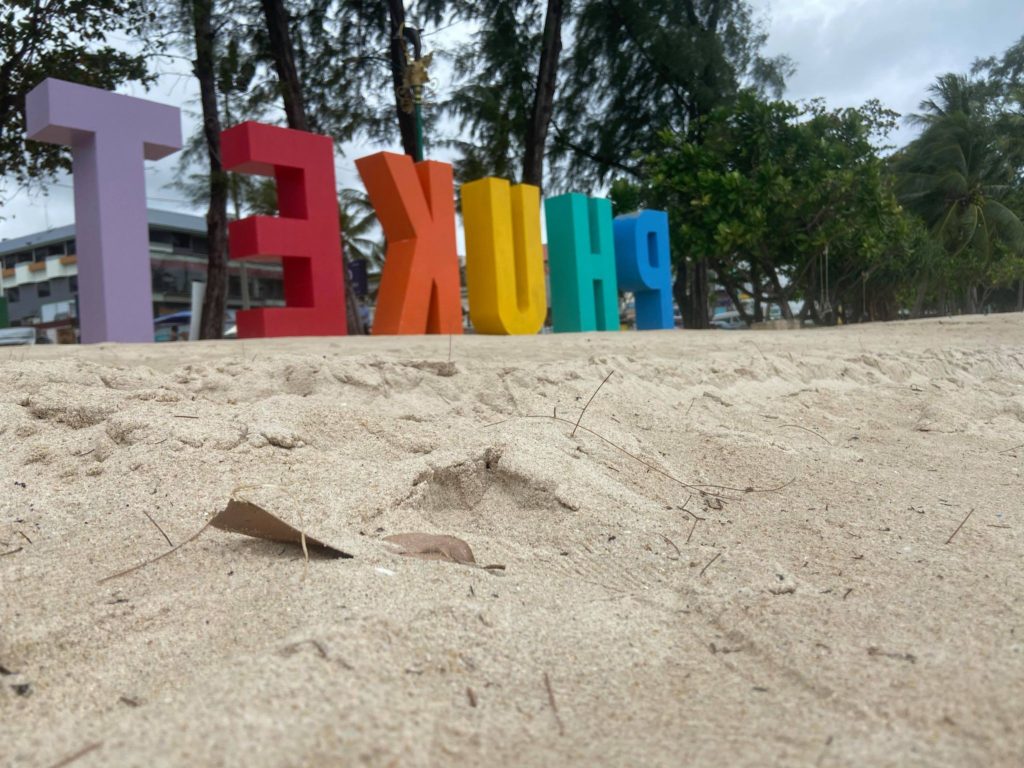
For some tourists, the worst thing about travelling is the other tourists. If thats you, a brochure with some pictures of contemporary Phuket would be enough to get you on a plane instantly.
The popular vacation island has since the start of July been home to the innovative Phuket Sandbox program which has opened the island up for travelers.
It is however a strange experience to be part of the Sandbox. The characteristic vast beaches are more or less deserted, and locals are sitting around most day waiting for business. It seems like Phuket with the Sandbox Program is on respiratory help while it’s waiting for the island to really come alive.
Safety standards and freedom
The Sandbox program is an initiative to revitalize the Island of Phuket where tourism accounts for 90% of the local economy. The program was constructed to make travelling to Phuket attractive while still keeping up with all Covid safety measures. This balancing act has meant that there is a great deal of steps and requirements that any traveler must go through before they can set foot on Phuket. Full vaccination, a fresh negative PCR test and an all expense covering travel insurance is just some of the conditions that are required before booking a travel to Phuket.
The safety measures are clearly felt from the moment you step into the airport.
I left Denmark on the 19. August and arrived at Phuket Airport the day after at 3:30 pm. Right upon arrival we were all seated at the gate and made to fill out numerous papers to make sure no stowaways have entered without living up to all security standards. When the papers – stating which of the Covid safety approved SHA+ hotel you are booked in with– were filled out, we were ushered on to another desk where our fingerprints(!) are taken. Then it’s off to do the mandatory Covid test before a taxi takes you directly to your hotel room where you must isolate until the results are back. The whole experience makes it feel at bit like you’re an inmate entering jail. Another interesting feature in this respect is the app you must install that traces all your whereabouts on the island. The ankle monitor of the tourism industry.
What makes Phuket attractive to choose as a destination, however, is the fact you don’t have to isolate in a hotel room as in the rest of Thailand outside the Sandbox program. The whole island has in a way become a quarantine area that you then can’t leave before you quarantine period is over. This solution has been made in an effort to bring some normality back to the island of Phuket that is so dependent on tourism.
But there is a long way to go. In July the number of visitors to Phuket was only one percent of the usual pre-pandemic level, an official told Reuters in an interview.
A solitary stay
You sense quickly that Phuket is in no way back to normal yet when you move around the “Sandbox”. My trip to the big “Phuket Fantasea” theme park was a clear example of this. The whole theme park complex is like a ghost town, the only thing still running is the water fountains, maybe someone forgot to turn them off when the theme park was temporarily closed back in 1. August 2020.
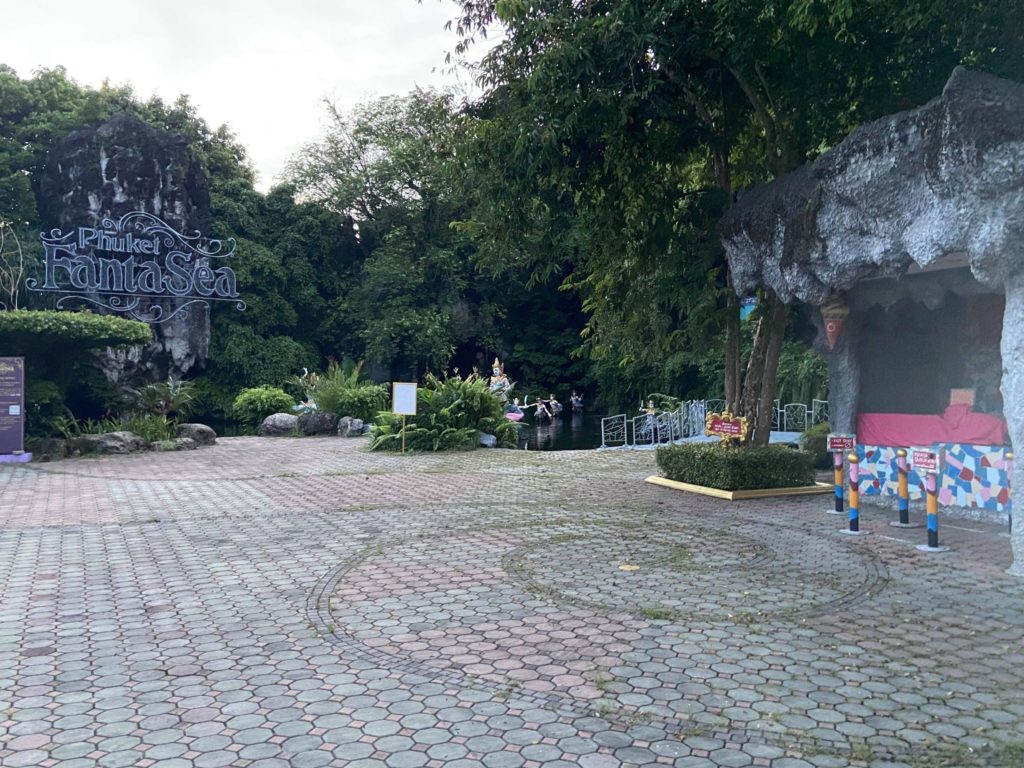
The beaches are another place where the differences from pre-corona times are easily spotted. The entire strip of sand at the Kamala beach is almost deserted. Two masseuses called Nanny and On On are trying to kill the time while waiting for customer, but a part from me, the only living creature near them was a beach dog who was roaming around the pavilions.
The pandemic is still felt here at the open-air massage parlor. Times are very tough.
“We are very happy if we can get one or two customers in a day. The hotel next to us where a lot of our customers came from is not a SHA+ hotel so we have lost all of those customers,” Nanny Says
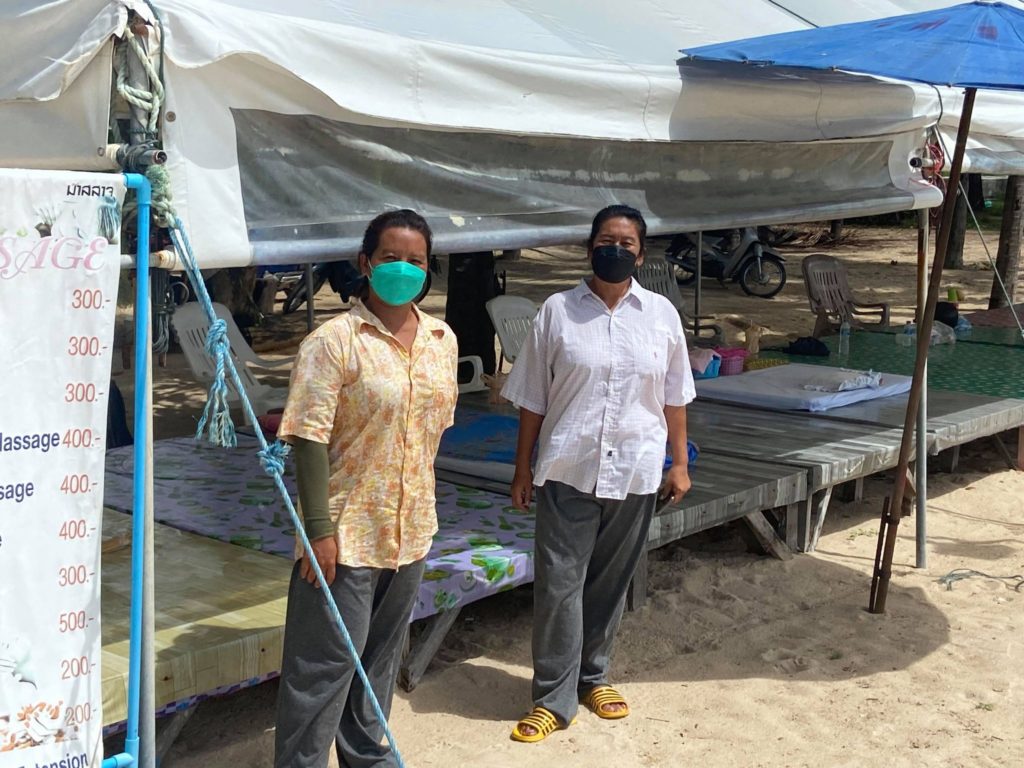
The customer dry spell hasn’t been made easier by the missing help from the government.
“Last year we could get 5000 Baht per month from the government, even though it was very complicated to apply for. This year we are not getting anything. So, we are really hoping more people will show up at wintertime,” Nanny explains.
On the slightly more visited Patong beach a few deck chairs had actually been occupied by visitors. One of them is Ben Long from England. He is staying in Phuket for 14 days as a quarantine procedure before he can go to Bangkok, where he is going to teach English.
“It has been pretty bizarre cause it feels kind of solitary even sitting here on the beach. It actually surprised me how much closed down it is. So I’ve been spending most time eating, what else can you do,” Ben says.
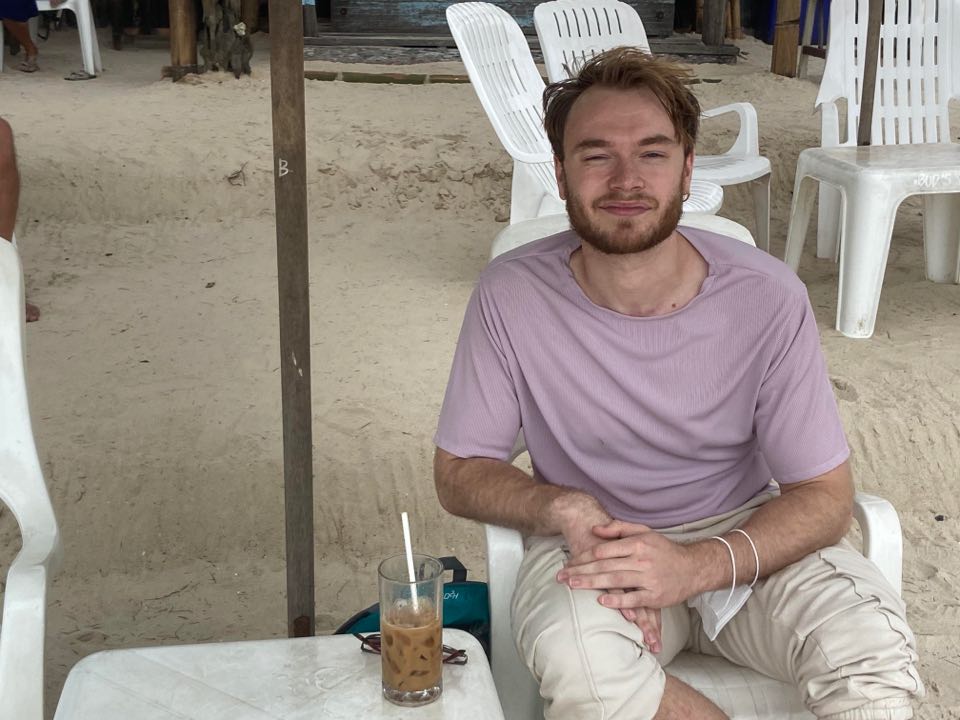
Ben’s purpose of visit is very symptomatic for the people who are coming into the Phuket Sandbox. They are in many cases using Phuket as a transit to get further in to other parts of Thailand where they have work or studies to attend to, rather than being there solely for the purpose of holiday.
“I told my friends who want to come out and visit me, that they should wait, cause it’s not super interesting to just be on holiday down here at the moment,” Ben adds.
The consequences for the Phuket community.
One thing is that tourism isn’t up to its usual self, but what’s more is that the state of the tourism industry also has serious social consequences for people living in Phuket. This is also the case for the Scandinavian community on the island.
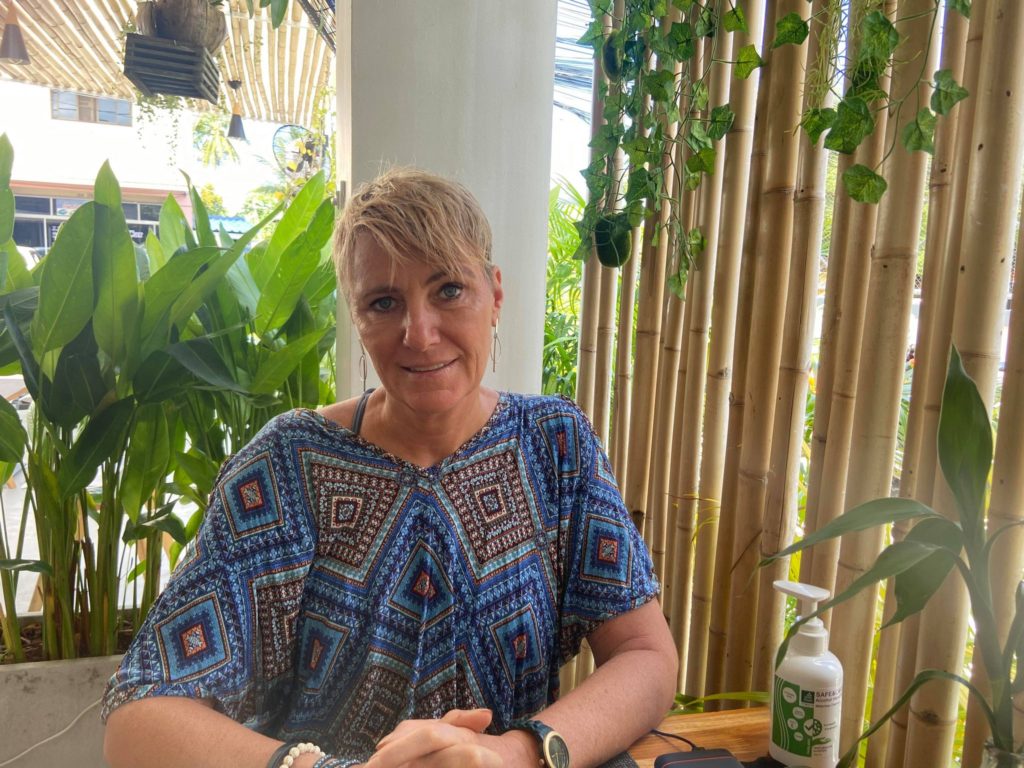
Lotta Hansson, a Swedish business owner of the “La Moet” boat tour company, came to Phuket for the first time in 1995. She fell in love with diving on a vacation to Thailand and went on to be a diving instructor for some years. Until recently she has been taking tourist out on boat tours on a self-made reconstructed fishing boat, but the pandemic has put a hold on this business since the 26 of March 2020. The corona crisis has changed Lotta’s everyday life significantly.
“The biggest difference is that I have no daily routine anymore. Normally I would start going to work and greet customers in the morning and then just go on from there. But right now this routine is gone for a lot of us,” Lotta Says.
Another consequence is that a lot of Phuket residents – both European and Thai – have had to leave Phuket and move back to where they came from after their livelihood on the island has disappeared. This has also been the case in Lotta’s social network who little by little has been diminished.
“You have seen a lot of sad stories where people’s family split because they don’t have any money. They can’t support themselves anymore and have to go back to their home country leaving their spouse and kids behind. I have also said goodbye to some of my friends,” Lotta says.
Lotta explains one of these stories.
“My friend Friday’s husband left for England. He was as a manager for a big diving company here. He stayed in Phuket from March to December but with two kids in school he had to fly home to find a job so he could send money for his family in Thailand. Hopefully they can save up money to get a plane ticket and apply for an English visa so they can meet again,” Lotta tells.
Lotta is also at risk of ending up in a situation where she can be forced to leave Phuket and Thailand.
“A lot of people who come here to make business has invested a lot of money into things, but they don’t have any cash and that is really not good now when all business is gone. I have a little bit saved up but after that I can’t just eat my boat,” Lotta explains
Without the boat company it will be hard for Lotta to stay in Thailand
“I have to have a work permit to stay in Thailand, and for me to have my work permit I have to have four Thai people employed. Since we don’t have anything to do, I can’t have people employed,” Lotta adds.
The Phuket Sandbox program and the tourists that are now visiting are not enough to change the fortune of Lotta and her peers she believes. The islands destiny also depends on other factors that lies way beyond the borders of Phuket.
“Thailand is on the red list for many countries. This means people have to spend so much time and money on going through isolation when they return home that it’s not worth it. So, it doesn’t matter that much if Phuket is doing the Sandbox. The whole of Thailand needs to do something first,” Lotta explains.
Exactly 14 days after my arrival at my hotel, I went to the reception to get the certificate stating that i had completed the Phuket Sandbox Program. It’s a permit that lets you leave the island which every sandbox guest receives at the end of their stay. A sort of “get out of jail card” but also a nice souvenir to put on the fridge.






Domestic air that started taking you to Bangkok and Chiangmai has been flying for a month.
I loved my time with no tourists.. I hate it for the amazing Thai I met just trying to hold on.
typical white man writing condescendingly about Asia. they took your fingerprints?? NOOOO WaYYYYYYY you mean the same thing the UK and US would do if you entered there? I’m pretty sure Denmark would take my fingerprints too if i went there.
So what about after the 14 days. How do you even leave Phuket? Ex. go to Bangkok? I understood there currently are no domestic flights and no public transportation… maybe I am wrong?
Well, before everybody was complaining how busy & bustling Phuket was. “Too many tourists, don’t go there” was the parlor du-jour. Presently its pristine and peaceful and full of great nature with the locals appreciating any and all business and many are more relaxed/friendly -evenwhile little business or to do. Most places are open and unlike in some part of EU there are is no police at every corner or restaurants making rounds checking for Virus certificates or more. 🙂